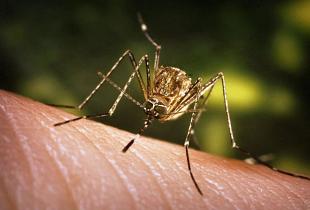West Nile Virus detected in GTA mosquitoes
Just when you thought it was safe to go outside again …
Both Toronto and Peel Public Health are confirming West Nile Virus has turned up in mosquito pools during regular testing.
In Toronto, two of the city’s 22 mosquito traps have had positive tests for West Nile, the first such results for 2021.
In 2020, a total of 39 positive mosquito pools were reported.
West Nile virus is transmitted to humans through mosquito bites; June to September is the period during which mosquito traps are set and checked as it is the most active time for the insects.
In Peel, the first positive mosquitoes have likewise been identified.
The mosquitoes were collected in Brampton near the intersections of Chinguacousy Rd. and Williams Pkwy., and Queen St. E. and West Dr.
There have been no human cases of West Nile in Peel or Toronto so far this year.
As with other illnesses, those most at risk of West Nile Virus are over 60 and have other health issues or compromised immune systems.
But West Nile can be deadly, so take precautions for yourself and your children:
- Use insect repellent containing DEET or icaridin on exposed skin and clothing.
- Wear light coloured clothing, including long pants and long-sleeved shirts.
- Avoid areas (shaded, wooded) where mosquitoes are found in number, and especially at dusk and dawn, when the insects are most active.
- Make sure to clear standing water on your property, and that includes smaller sites where stagnant water gathers, such as on pool covers, in buckets or empty planters and the like.
- Check screens on doors and windows and repair any holes.
Symptoms of West Nile usually develop between two and 14 days after a mosquito bite and may include fever, headache, nausea, vomiting, body aches, skin rash and swollen lymph glands.




